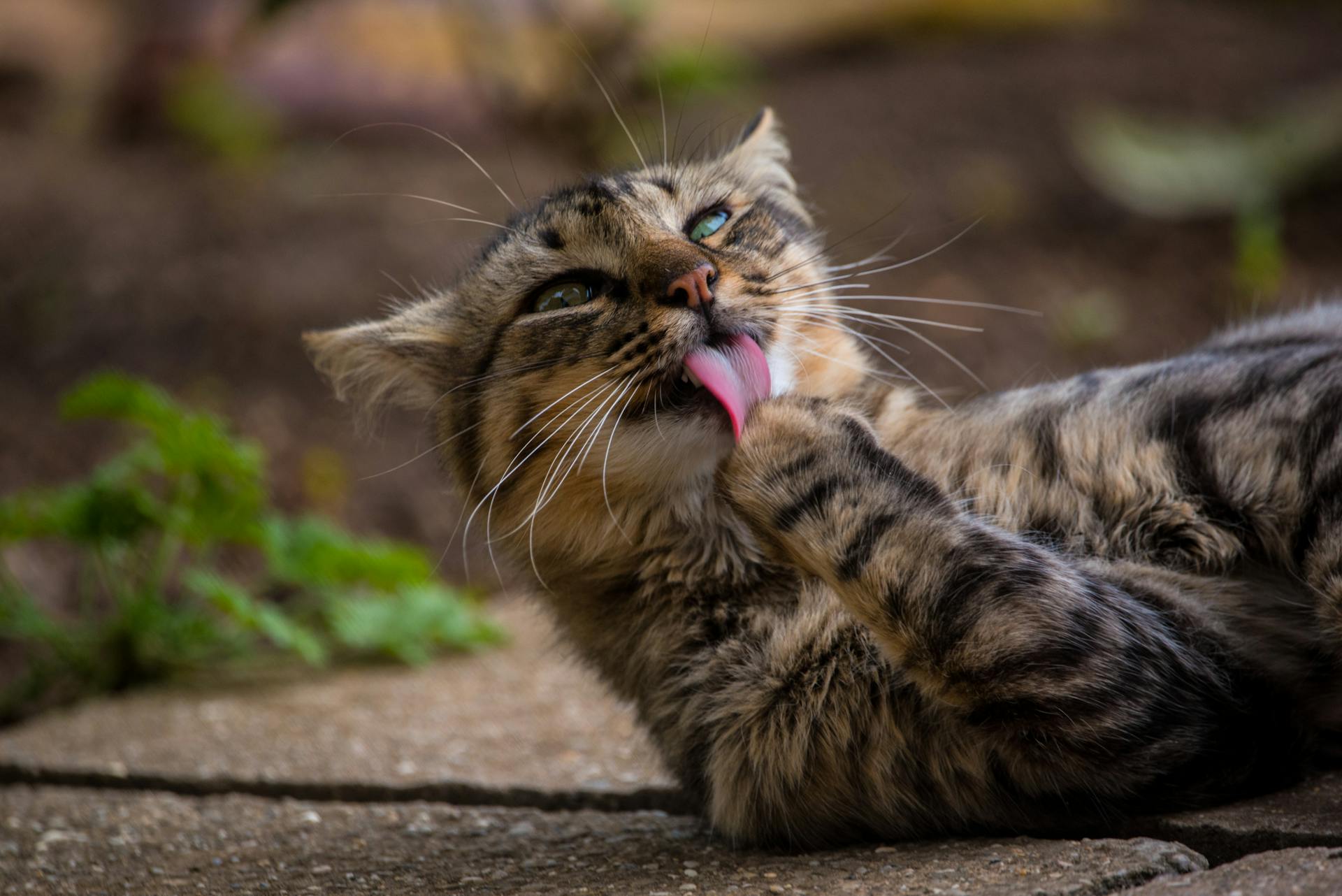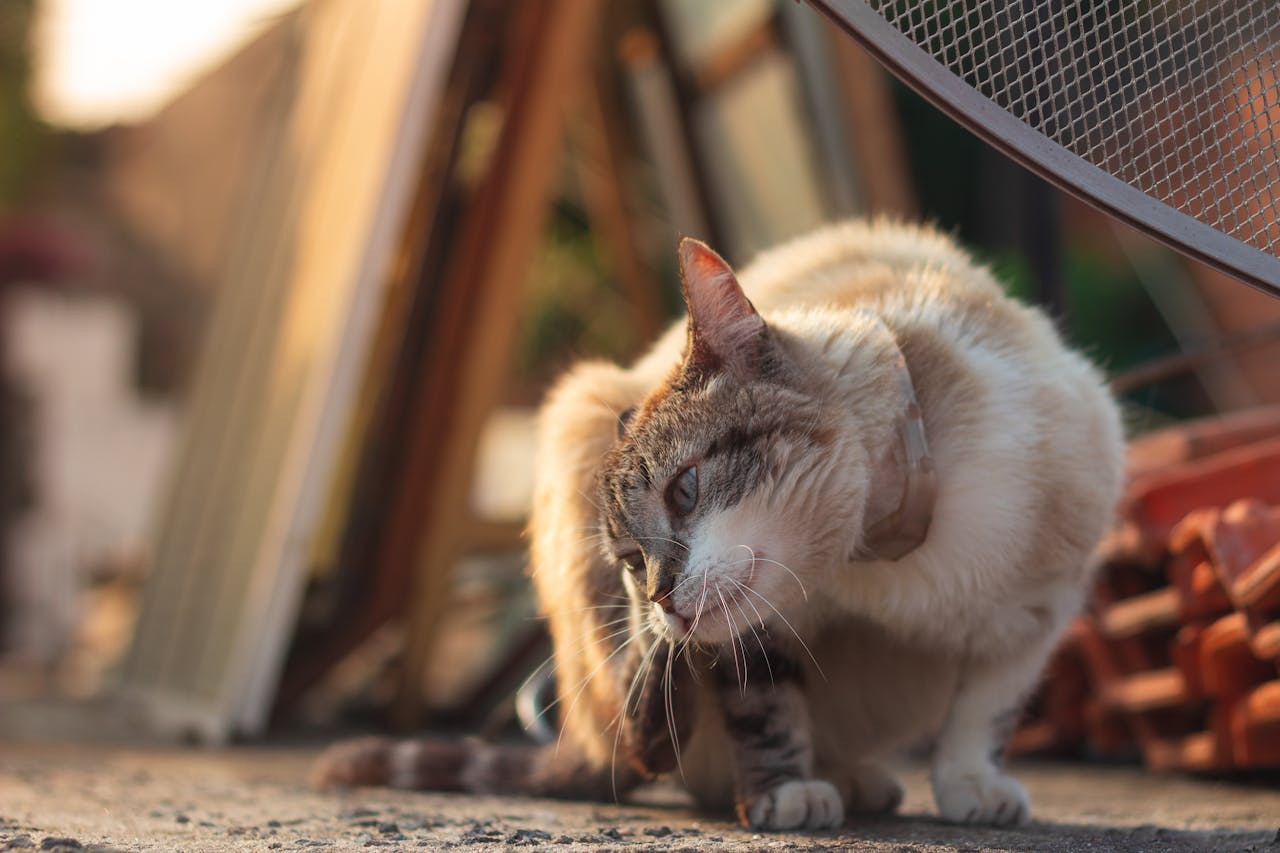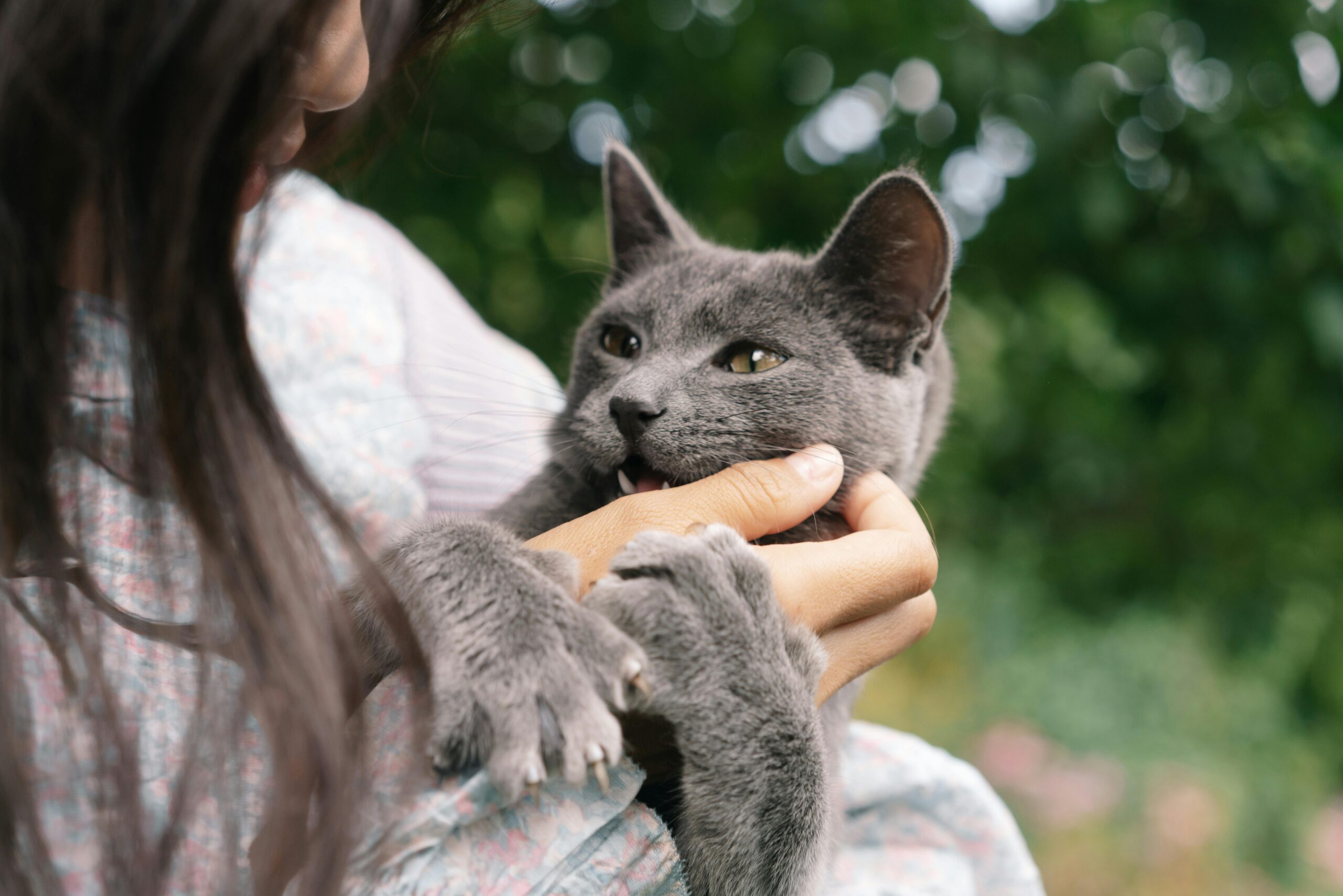Is Dog Shampoo Safe for Cats?
Most kitties need a little help from their owners to keep them squeaky clean – especially when they get into something sticky (we’ve all been there.) It might feel tempting to grab your dog’s shampoo and wash your cat with it, but please resist that urge! Using products meant for dogs isn’t good for cat health and can damage their skin!
2 Reasons You Shouldn’t Use Dog Shampoo on Cats:
- Both species have distinct PH levels, so their skin responds differently to certain ingredients.
- Some dog soaps include chemicals that don’t suit other pets.
Understanding Dogs’ and Cats’ Different PH Levels
The level on the PH scale indicates how acidic or alkaline a substance is. Because these metrics differ in each species, they each need a distinct formula; this helps to preserve their natural balance and shield the skin’s delicate barrier. According to a well-documented study,
- Dog skin is more alkaline, with a pH of around 7.52
- Cat skin is more acidic, with a pH of about 6.43
Applying dog shampoo to cats is like splashing vinegar on people. Our skin would become dry, itchy, and burning as a result of the pH being lowered. However, vinegar has its uses for cleaning windows (and even certain plants, like orchids). Not everything that works for one purpose will work the same for another. Likewise, you can’t use dog shampoo on cats.
Dog Shampoos Sometimes Contain Ingredients Unsafe for Cats
Here’s another explanation for why you can’t use dog shampoo on cats: the ingredients vary between the formula types. Canine products occasionally include chemicals, oils, and fragrances that can trigger negative responses in felines. Here are some examples:
- Dog flea shampoo is a product you should definitely avoid using on cats. It may incorporate permethrin and pyrethrin (chemicals highly toxic to felines). Cats can’t metabolize such substances. Even small quantities can trigger extreme poisoning or worse. Instead, ask a vet about the safest flea control alternatives for your cat.
- Tea tree oil is periodically added to dog shampoos. Its antifungal traits can help battle parasites. However, overusing this oil may bring about weakness and shakiness (potentially inducing a coma).
- Other essential oils or fragrances that can make dog shampoos smell pleasant or therapeutic can provoke skin irritation and respiratory troubles for cats. Some examples are cinnamon, citrus, and peppermint oil.
- Isopropyl, or rubbing alcohol occasionally finds its way into pet care products but it can be very detrimental and drying. It’s kinder to steer clear of products containing alcohol. There are plenty of safer and gentler alternatives.
What if I Accidentally Used Dog Shampoo on My Cat?
If you accidentally washed your cat with dog shampoo, please don’t panic! Most canine products aren’t directly harmful if used once, but they’re not formulated with your kitty in mind. Rinse her thoroughly with water, watch for any signs of irritation and she should be fine.

Source: Photo by Foden Nguyen
How to Choose the Right Shampoo for Your Cat
In the video below, Dr. Karen Becker (a veterinarian focusing on proactive and integrative wellness) talks about how significant it is to select the correct shampoo for your pet cats.
What Should I Bathe My Cat With Instead?
If you don’t have a cat-specific shampoo in the house, you’ll need a safer alternative than grabbing your dog’s. Baby shampoo and Dawn dish soap are your two best options; they are fine to use occasionally, but not a substitute for a proper cat shampoo. Here’s some insight on possible alternatives:
Baby Shampoo
In a pinch, a delicate and tear-free baby shampoo formula can be a fair choice for bathing a cat, especially one desperately needing a wash. But it’s still not an ideal match for the pH of feline skin. So it’s best to use it sparingly and rinse it thoroughly. You want to stay away from any product with irritating fragrances or additives.
Dawn Dish Soap
You may already have some Dawn dish soap under your kitchen sink; it is a popular choice for removing oil or grease from many things. Many pet owners use Dawn safely on their cat’s fur—it’s fantastic to have on hand for washing away oil spills (or unfortunate cases of skunk spray).
Dawn is gentle enough for feline skin because it works to break down the greasy substance without stripping the natural oils from their coat. Again, this remedy is not a replacement for regular bathing. Too much of it can become drying and you always want to rinse all traces well.
Pet Wet Wipes
Specially formulated pet wipes are a convenient way to freshen up fur and paws when needed. Suppose your kitty walks on a dirty surface or something spills on them. Instead of reaching for your dog’s shampoo, wipe your cat’s paws and fur with a gentle and moisturizing pet wipe. Wet Ones for Pets is a fantastic on-the-go solution for both cats and dogs.
Waterless Shampoo
Natural ingredients like 100% pure aloe vera and oatmeal can help to cleanse and soothe feline skin without aggravating it. Try this veterinary-approved waterless shampoo on your kitty’s coat: massage it gently, then wipe it off with a towel or a brush.
The pH-balanced formula moisturizes fur and leaves a delightful, fresh scent, making it an ideal solution for washing your cat without needing water. (What a great way to give a cat a bath without getting scratched or if your kitty hates water! This product is an excellent occasional alternative.)
Castile Soap
Do you have any natural castile soap in your cupboard? It is kind and soothing enough for a cat’s skin because it is made from vegetable oils (like olive oil). But it does need to be 100% pure castile soap, without any essential oils or other damaging ingredients. Again, you want to avoid irritation and remove all the soap residue, so be sure to rinse their coat well.
Baking Soda as a Dry Shampoo
Here’s a safe and non-toxic grooming solution from your kitchen pantry. Baking soda can naturally deodorize and cleanse cat fur (like we might use dry shampoo to refresh our hair). Sprinkle some onto the coat and carefully brush it to release the excess. You could also mix a baking soda and water paste to bathe your cat with. But using it dry is less messy (and more calming for your pet).

Frequently Asked Questions:
Can I Use Oatmeal Dog Shampoo on My Cat?
You might think a dog shampoo containing oatmeal will be kind to your cat’s skin, and you may feel tempted to use it. But please don’t; while oatmeal can indeed be calming, remember that a canine formula may contain other elements that are dangerous or inappropriate for cats.
Can I Use Burt’s Bees Dog Shampoo on My Cat?
You shouldn’t use Burt’s Bees dog shampoo on your cat. Even though it might be fantastic for Fido, it won’t be as kind or mild for your kitty. All species react differently to even natural chemicals. Cat-specific shampoos from Burt’s Bees are a safer option.
Final Thoughts
Please remember that you never want to use dog shampoo on cats because, in the long run, it could harm their health. Try some alternatives mentioned here for an occasional spruce-up. In the end, the safest cat shampoo should have a pH of 6 to 6.5 to match their skin and include safe ingredients.
Sources and Further Reading
- Give Your Kitten a Bath With These Simple Tips | Animal Humane Society – The thought of bathing a cat is enough to make even the most seasoned pet caregiver cringe, but young kittens often require help staying clean. Follow these simple tips to make bath time a breeze.
- How To Wash A Cat Without Cat Shampoo | Cats.com – Wondering how to wash your cat if you don’t have any cat shampoo? Dr. Louise Barnes explains safe alternatives if your cat needs a fast bath.




